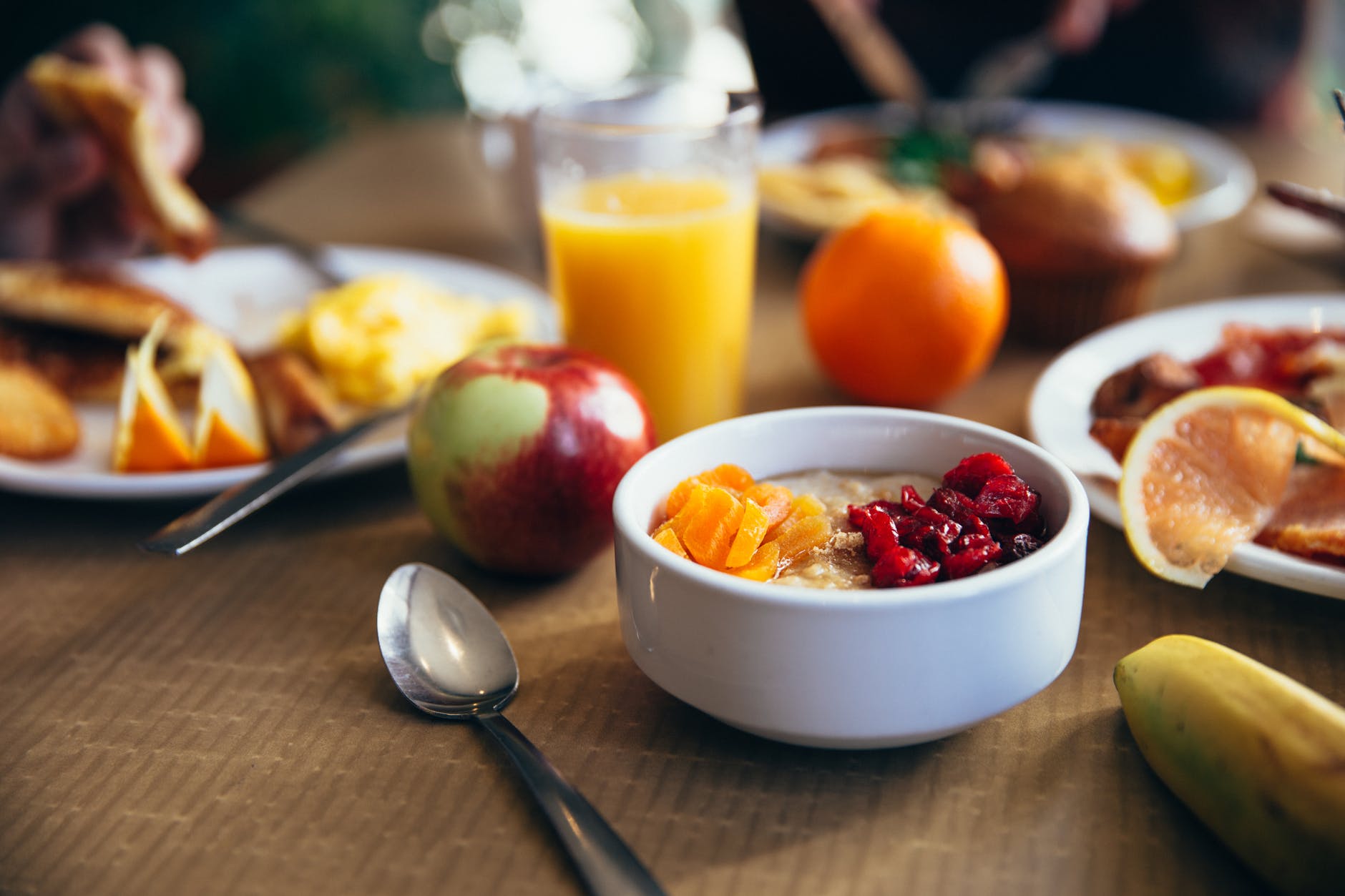
Healthy Eating & Travelling!
By Charlotte Foster BSc (Hons), MSc, RD
I recently returned from my honeymoon and it got me thinking about how challenging it can be to be mindful about eating healthily when on holiday or when travelling.
We were surrounded by SO much delicious food. The choice of several incredible restaurants to dine at, countless cocktails served with countless canapes was amazing, but with so much delicious temptation everywhere, I actually found it quite overwhelming and difficult to maintain a balance! I never thought I would say this, but by the end of the trip, I really craved vegetables, bake beans and culinary simplicity!
Now, whilst I’m a firm believer in feasting on a feast day and enjoying all foods in moderation, indulging day in and day out took its toll!
However, there have also been trips where we have taken to the road with a more coin counting mentality! Being on a budget and with no means of refrigerating foods, (passing the time away with car karaoke!) eating anything other than highly processed snacks was a challenge.
Here are some of my top tips to navigate times of travel in the healthy eating arena!
Beware of the buffet!
Food glorious food! Buffets, serve yourself restaurants or all-inclusive holidays often encourage us to pile our plates to make the most of our money. The problem is this can encourage us to overeat and if done regularly will lead to us piling on the pounds as our bodies store the excess energy we consume.
Portion control!
When eating out at restaurants, it can be difficult to have control over the portion sizes of foods. Some countries/continents e.g. America are renowned for delivering larger plus size portions but more and more it is commonplace to order mammoth potions of food when eating out. If you’re at a buffet and more in control be careful not to over fill your plate. It can take up to 20 minutes for the feeling of satiety to kick in so take your time when dining!
For healthy eating, for a main meal the recommended portion sizes are:
- 1/3 plate starchy carbohydrate (e.g. pasta, rice, potato, cous cous)
- 1/3 plate protein (e.g. meat, fish, lentils, pulses etc)
- 1/3 vegetables
In weight loss, to achieve a calorie deficit try aiming for the following adjustment in portion sizes:
- ¼ plate starchy carbohydrate
- ¼ plate protein
- ½ plate vegetables
Eat your greens!
Get your 5 a day! As well as being nutritious, most fruits and veg don’t require refrigeration and make a fantastic on the go snack if you’re travelling. Indulge in local/ seasonal produce to make sure you stock up on antioxidants, vitamins, minerals and fibre.

Avoid raiding the mini bar!
If you’re staying in a hotel equipped with a little treat filled fridge, try to limit / avoid opening it and devouring the tempting contents. As well as encouraging you to snack on potentially high sugar, salt and fat containing snacks, there tends to be a monetary mark up, meaning It will end up costing your wallet as well as your waist line!
Learn to be a food sharer!
An area my husband has grown massively in… food sharing. If faced with an abundance of rich and calorific foods or simply intrigued to sample a wide variety of local cuisine, having a more “open” and “sharing” approach to food can help satisfy your culinary curiosity whilst reducing your calorie intake.
Stay hydrated!
Most of us definitely don’t drink enough! If you’re in a hotter climate your demands for fluid will be greater. Although caffeine and alcohol may be fluids, they both act as “diuretics” which can increase your urine output and can exacerbate dehydration. So up the “hydrating fluids” (no surprises, water being the best!) and enjoy the caffeine and alcohol in moderation!

Watch the booze !
It is not uncommon that during times of rest, relaxation or celebration we may choose crack out our favourite tipple! As seen below, alcohol is high in calories (especially compared with carbs and protein) and that’s without a sugary mixer added to it!
- One gram of alcohol =7 kcal
- One gram fat = 9 kcal
- Once gram carbohydrates = 4kcal
- One gram protein = 4 kcal
Not only is it energy dense, but alcohol can infact stimulate our appetites possibly making us even more ravenous for our favourite treats!
For more information about alcohol, click here for a fantastic fact sheet from the British Dietetic Association.
Get active!
Holidays and travelling is a time to switch off, rest, make new memories and experience new things. However, if you’re anything like me, I love to spend hours relaxing by a pool with a good book, doing NOTHING!
Again, there is absolutely nothing wrong with this from time to time – in fact, rest is very important for our bodies too, but it is important to remember that doing at least 30 minutes of moderate or greater intensity activity at least five days a week is important for maintaining good health.
Walking, swimming, shopping, exploring, cycling, sight seeing – it all counts (as long as you do it for 30 minutes and it gets your heart rate up!). So incorporate exercise into activities that you find enjoyable!
For more healthy eating tips on how to lose weight, make sure you check out our article on weight loss tips!
